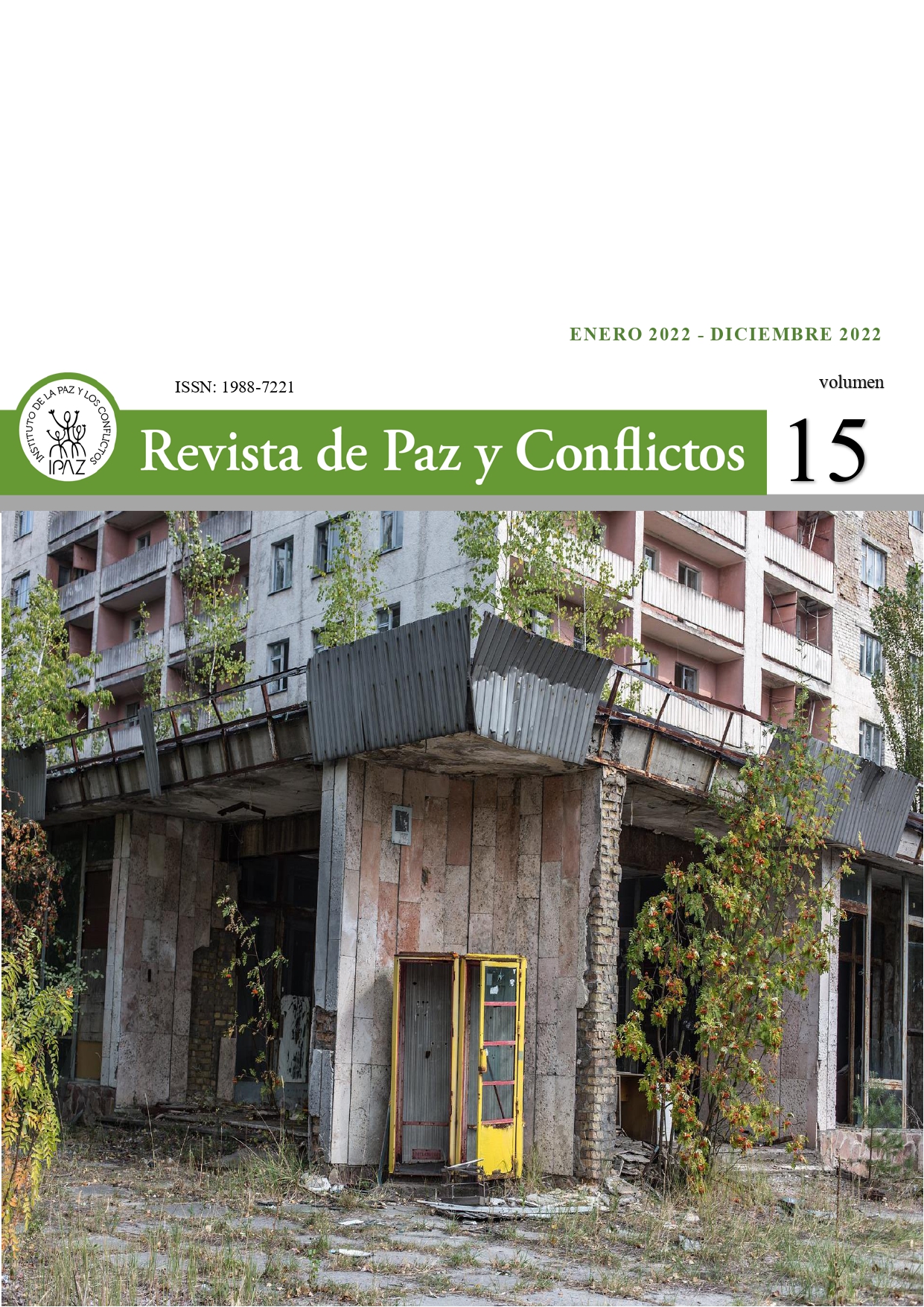Nonviolent Synergy. Militaries and Civilians during the 25th of April 1974
DOI:
https://doi.org/10.30827/revpaz.15.24526Keywords:
Nonviolence, Nonviolent Synergy, Civil Resistance, Democratic Coup d'etat, Estado Novo, Carnation RevolutionAbstract
On April 25th, 1974, the Carnation Revolution would take place in the streets of Lisbon ending the dictatorship of the Estado Novo. Tired of the bloody colonial war and the immobility of the regime, the Armed Forces Movement (MFA) would end up planning and executing a coup with democratic intentions. During the hours in which the coup took place, the civilian population of the Portuguese capital disobeyed the order of the insurgent soldiers to stay in their homes and invaded the streets declaring their support for the MFA. Both groups joined forces in pursuit of a peaceful political transition to democracy through the use of civil resistance and a democratic coup. Throughout this article we have studied this union of forces, this nonviolent synergy that brought down the longest-running dictatorship in Europe, trying to give another point of view to traditional analyzes to understand how both merged in a peaceful way.
Downloads
References
Accornero, Guya (2014) O ‘25 de Abril’: uma revolução nas ciências sociais, Ler História, 67, pp. 171-177.
Albert K., Richard (2011) Democratic Revolutions, Denver University Law Review, 89(2), pp. 15-29.
Almeida, João Miguel (2008) A oposição católica ao Estado Novo, 1958-1974, Lisboa, Nelson de Matos.
Arendt, Hannah (1963/2004) Sobre la revolución, Madrid, Alianza Editorial.
Baiôa, Manuel Paulo Jorge Fernandes (2002) La Historia Política del Portugal Contemporáneo, Historia y Política: Ideas, procesos y movimientos sociales, núm 7, pp. 11-54.
Birmingham, David (1993) Historia de Portugal, Cambridge, Cambridge University Press.
Cueto, Adolfo (2011) Portugal y su imperio frente a la descolonización 1945-62, Espacio, tiempo y forma, Serie V, Historia contemporánea, núm. 23, pp. 161-200.
De la Torre, Hipólito y Sánchez Cervelló, Josep (1992) Portugal en el siglo XX, Madrid, Istmo.
Erickson Nepstad, Sharon (2011) Nonviolent revolutions. Civil Resistance in the Late 20th Century, Oxford, Oxford University Press.
Grayson Jr., George W. (1976) Portugal y el Movimiento de las Fuerzas Armadas, Estudios Internacionales, núm. 33, pp. 3-46.
Leite Pinto, Ricardo (2016) O "Programa do Movimento das Forças Armadas": o singular destino da Constituição revolucionária do 25 de abril de 1974 em Portugal, Historia constitucional. Revista Electrónica de Historia Constitucional, núm 17, pp. 309-343.
López-Martínez, Mario (2016) La resistencia civil examinada: de Thoreau a Chenoweth, Polis Revista Latinoamericana 15(4), pp. 7-15.
López-Martínez, Mario (2015a) Más de medio siglo de insurrecciones no armadas (1950-2014). El papel histórico y político de la resistencia civil en un mundo glovalizado, en Conflictos armados, género y comunicación, en Inmaculada Marrero Rocha, Madrid, Tecnos, pp. 111-145.
López-Martínez, Mario (2015b) Nonviolence in social sciences: towards a consensual definition, Revista de Paz y Conflictos, 8(1), pp. 63-81.
Marx, Karl (1867/1984) El Capital, Barcelona, Orbis.
Melo de Carvalho, Luis Pedro (2009) O movimento dos capitães, o MFA e o 25 de Abril: do marcelismo à queda do Estado Novo, Recil. Repositório Científico Lusófona [En linea]. https://recil.ensinolusofona.pt/handle/10437/4379 [Consultado el 20 de marzo de 2022].
Nuno Rodrigues, Luis (2012) “Preparing for the Next War”: the Portuguese Army Staff Corps and the Military Reforms on the eve of the Colonial Wars, Bulletin for Spanish and Portuguese Historical Studies, pp. 117-129.
Real Academia Española (1994) Diccionario de la lengua española, Madrid, Espasa Calpe.
Rosas, Fernando (2004) La oposición a la dictadura militar y al Estado Novo (1926-1974). La larga marcha de las izquierdas portuguesas, Studia Historica, Historia Contemporánea, 21, pp. 137-154.
Rosas, Fernando y Pedro Aires Oliveira (2004) A transição falhada: o marcelismo e o fim do Estado Novo (1968-1974), Lisboa, Noticias.
Sánchez Cervelló, Josep (2010) Características del régimen salazarista, Studia Historica, Historia Contemporánea, pp. 115-136.
Sánchez Cervelló, Josep (1999) La revolución de los claveles: Visión de los protagonistas y mirada de los otros, Política Exterior, 13(70), pp. 151-155.
Sánchez Cervelló, Josep (1995) La revolución portuguesa y su influencia en la transición española (1961-1976), Madrid, Nerea.
Sharp, Gene (1994) From Dictatorship to Democracy. A Conceptual Framework for Liberation, Boston, Albert Einstein Institution.
Sharp, Gene (1973/2000) The Politics of Nonviolent Action, Boston, Porter Sargent Publishers.
Sharp, Gene y Bruce Jenkins (2003) The Anti-Coup, Boston, Albert Einstein Institution.
Stephan, Maria J. y Erica Chenoweth (2013) Why civil resistance works: the strategic logic of nonviolent conflict, New York, Columbia University Press.
Varol, Ozan (2012) The Democratic Coup D´Etat, Harvard International Law Journal, 53(2), pp. 292-356.
Varol, Ozan (2017) The democratic coup d'état, Oxford, Oxford University Press.
Downloads
Published
How to Cite
Issue
Section
License
Esta obra está bajo una licencia internacional Creative Commons Atribución 4.0.














